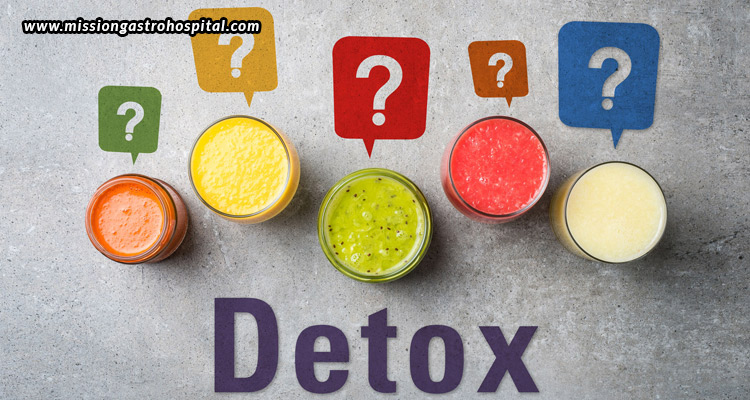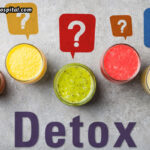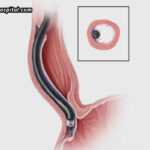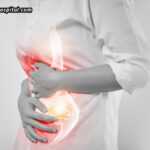In our current health-focused society, detox diets have become closely associated with revitalization. Ranging from juice cleanses to herbal infusions, these programs claim to rid the body of toxins, enhance digestion, and reset overall health. For many individuals, the prospect of temporarily stepping away from daily indulgences provides both physical and mental advantages. However, do detox diets truly contribute to digestive health, or are there more effective, sustainable methods to nourish the gut and achieve a sense of renewal? This blog delves into the potential benefits of detox diets and examines how a balanced nutritional approach may lead to enduring digestive well-being.
Understanding detox diets
Detox diets come in various forms, but they generally aim to assist the body in eliminating toxins while giving the digestive system a short respite. Popular options include juice cleanses, liquid fasts, herbal teas, supplements, brief fasting or calorie restriction, and elimination diets that remove sugar, caffeine, and processed foods. Advocates of detox diets often report increased energy levels, improved digestion, and less bloating. These benefits may stem from a reduction in processed food consumption and an increase in fluid intake, both of which can positively impact digestive health.
The body’s natural detoxification process
It is crucial to acknowledge that the human body possesses its own detoxification mechanisms, primarily through the liver, kidneys, digestive system, and skin. These organs continuously work to process waste and expel toxins via natural routes such as urine, faeces, and perspiration. Often, what detox diets advocate are practices that merely enhance the body’s inherent capabilities. Supporting these natural functions through increased hydration, fibre intake, and nutrient-rich foods as part of a healthy lifestyle is frequently more advantageous than engaging in extreme or restrictive dietary practices.
The impact of detox diets on digestion
Detox diets can offer temporary relief from digestive discomfort, with many individuals reporting reduced bloating and increased energy levels during the detox period. These benefits often arise from the elimination of processed foods, sugary snacks, and heavy meals, which can inspire healthier, more mindful eating habits moving forward. However, while detox plans may provide a short-term sense of digestive ease, they can also pose risks if followed for extended periods. Some detox variations may lack essential nutrients like protein, fibre, and healthy fats – elements crucial for digestive efficiency. Moreover, detox diets that involve laxatives or diuretics may lead to fluid loss rather than proper hydration, resulting in fatigue, dizziness, and potential electrolyte imbalances. Therefore, it is important to approach detox diets with care, ensuring hydration and nutritional balance throughout the process.
Promoting digestive health through balanced nutrition
Regardless of whether you choose to undertake a detox diet, it is clear that maintaining sustainable, gut-friendly eating practices yields long-term benefits for digestion. Here are several strategies to naturally support your digestive system.
- Maintain adequate hydration by drinking at least 8 glasses of water every day, as water is essential for nutrient absorption, and helps prevent constipation.
- Incorporate fibre-rich whole foods like fruits, vegetables, whole grains, and legumes into your daily diet to keep your digestive tract functioning, and nourish the beneficial gut bacteria.
- Incorporate foods rich in probiotics, such as yogurt, kefir, and sauerkraut, to introduce healthy bacteria, and prebiotic-rich options like garlic and bananas to foster their growth.
- Engage in mindful eating by taking the time to chew slowly, consuming smaller portions, and minimizing stress during meals, to enhance your overall digestive process.
Finding a middle ground
Instead of perceiving detox diets as a permanent fix, view them as an initial motivation to adopt healthier lifestyle choices. A brief detox can assist in refocusing your health priorities, reestablishing your relationship with food, and promoting a decrease in processed food consumption. When approached thoughtfully and with the support of a healthcare professional, detox programs can serve as a foundation for achieving more balanced nutrition rather than being seen as a comprehensive solution.
When digestive symptoms persist
Experiencing occasional discomfort, such as bloating or indigestion, is common. However, if you regularly suffer from symptoms like heartburn, constipation, diarrhoea, unexplained fatigue after meals, abdominal pain, or blood in your stool, it may be advisable to seek the expertise of a specialist. These symptoms should not be ignoredas they may indicate underlying issues such as IBS, GERD, or food intolerances. In such cases, you can turn to Mission Gastro Hospital, which boasts of the best gastrology doctor in Ahmedabad. Whether you are dealing with chronic digestive disorders, in need of tailored dietary advice, or looking for safe methods to rejuvenate your gut, the professionals at Mission Gastro provide compassionate, evidence-based care. The hospital is equipped with state-of-the-art diagnostic tools and skilled experts to help you comprehend your symptoms and restore optimal gut health.
Your digestive system requires daily attention, not just during detox periods. While detox diets may provide a temporary feeling of rejuvenation, genuine digestive health is achieved through sustainable practices. Minor adjustments can lead to significant, long-lasting benefits. Therefore, begin with small changes, maintain consistency, and seek assistance when necessary.








